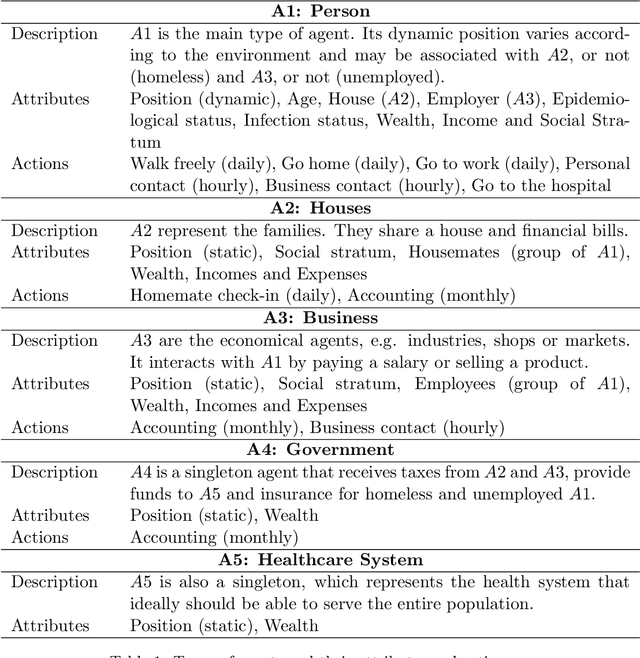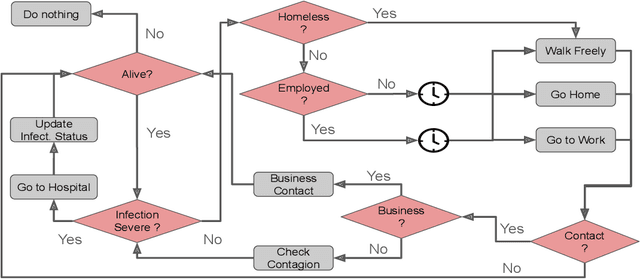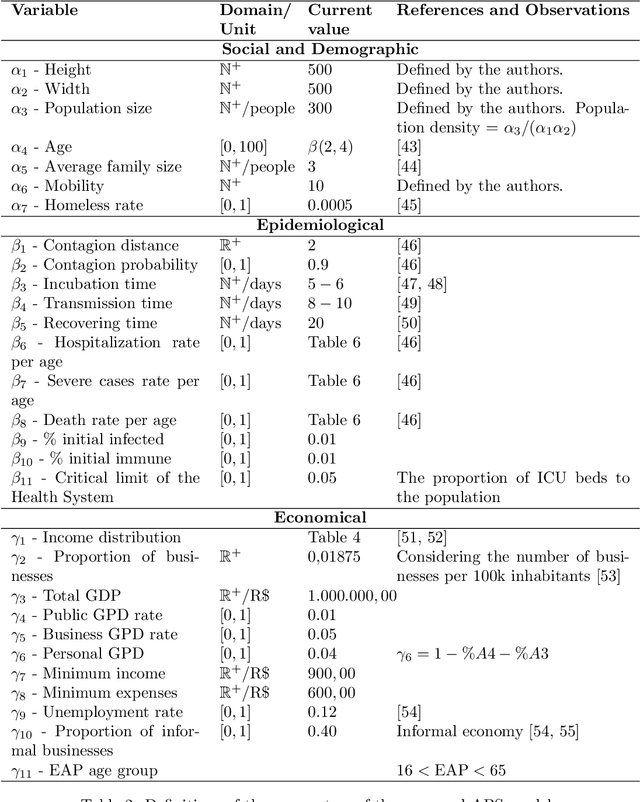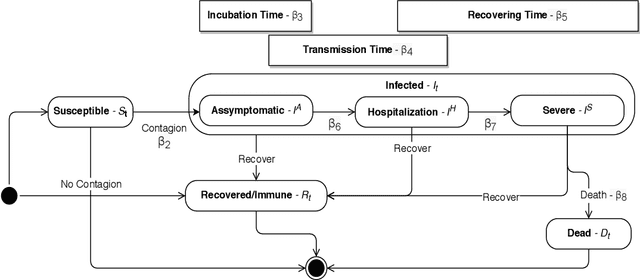Marcos A. Alves
COVID-ABS: An Agent-Based Model of COVID-19 Epidemic to Simulate Health and Economic Effects of Social Distancing Interventions
Jun 09, 2020



Abstract:The COVID-19 pandemic due to the SARS-CoV-2 coronavirus have directly impacted the public health and economy. To overcome this problem, the countries have adopted different policies for controlling the spread of the virus. This paper proposes the COVID-ABS, a new SEIR agent-based model that aims to simulate the pandemic dynamics using a society of agents emulating people, business and government. Seven different scenarios varying epidemiological and economical effects of social distance interventions were performed, which are: (1) do nothing, (2) lockdown, (3) conditional lockdown, (4) vertical isolation, (5) partial isolation, (6) use of face masks, and (7) use of face masks together with 50% of adhesion to social isolation. In the impossibility of implementing scenarios with lockdown which present the lowest number of deaths and highest impact on the economy, scenarios combining the use of face masks and partial isolation can be the more realistic for implementation in terms of social cooperation. The model can be easily extended to new societies by varying the parameters as well as allows the creating of a multitude of other scenarios.
 Add to Chrome
Add to Chrome Add to Firefox
Add to Firefox Add to Edge
Add to Edge